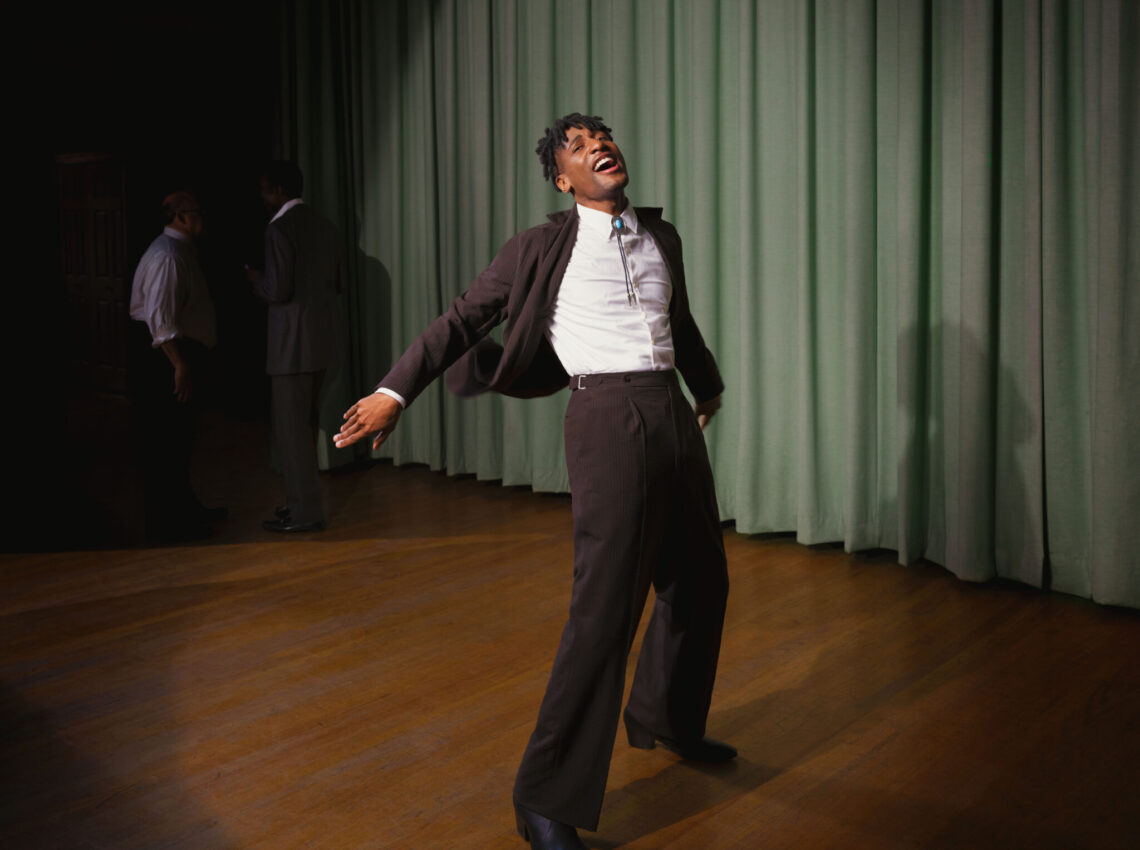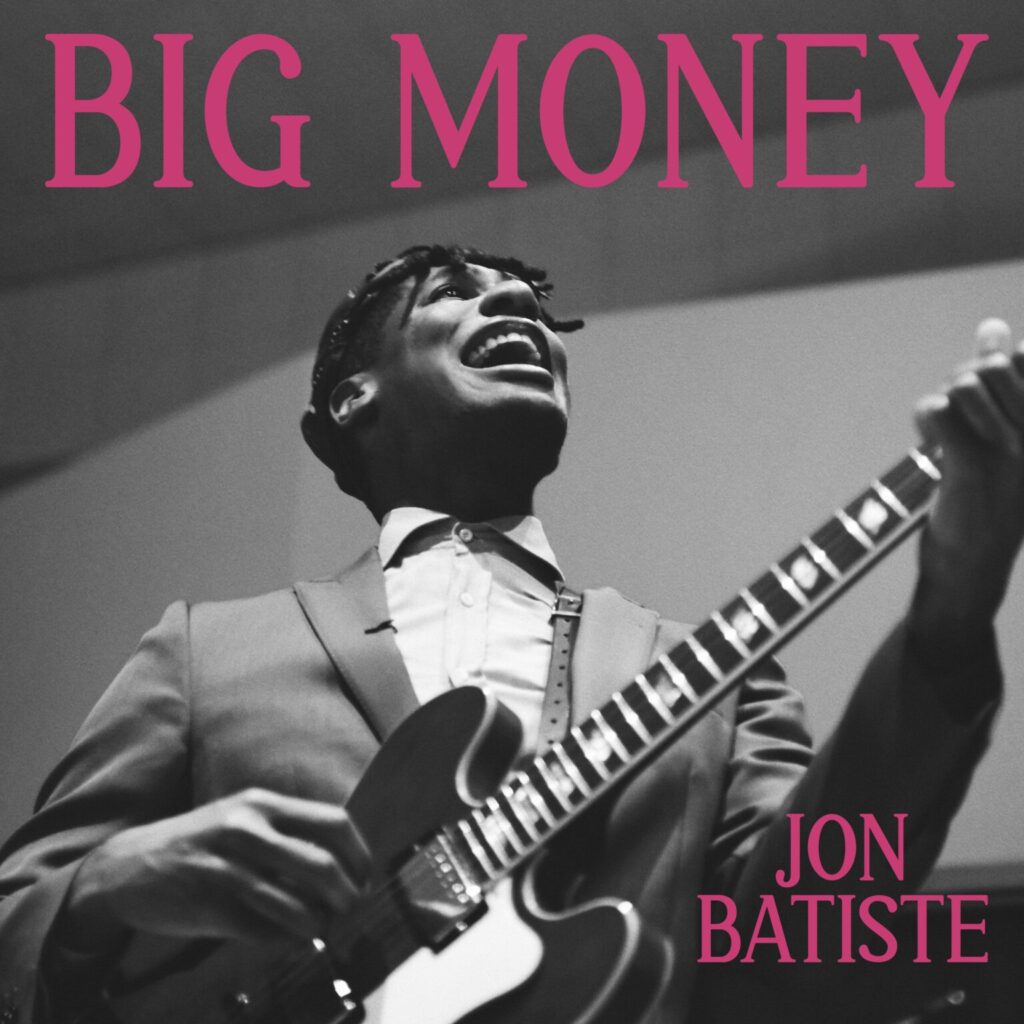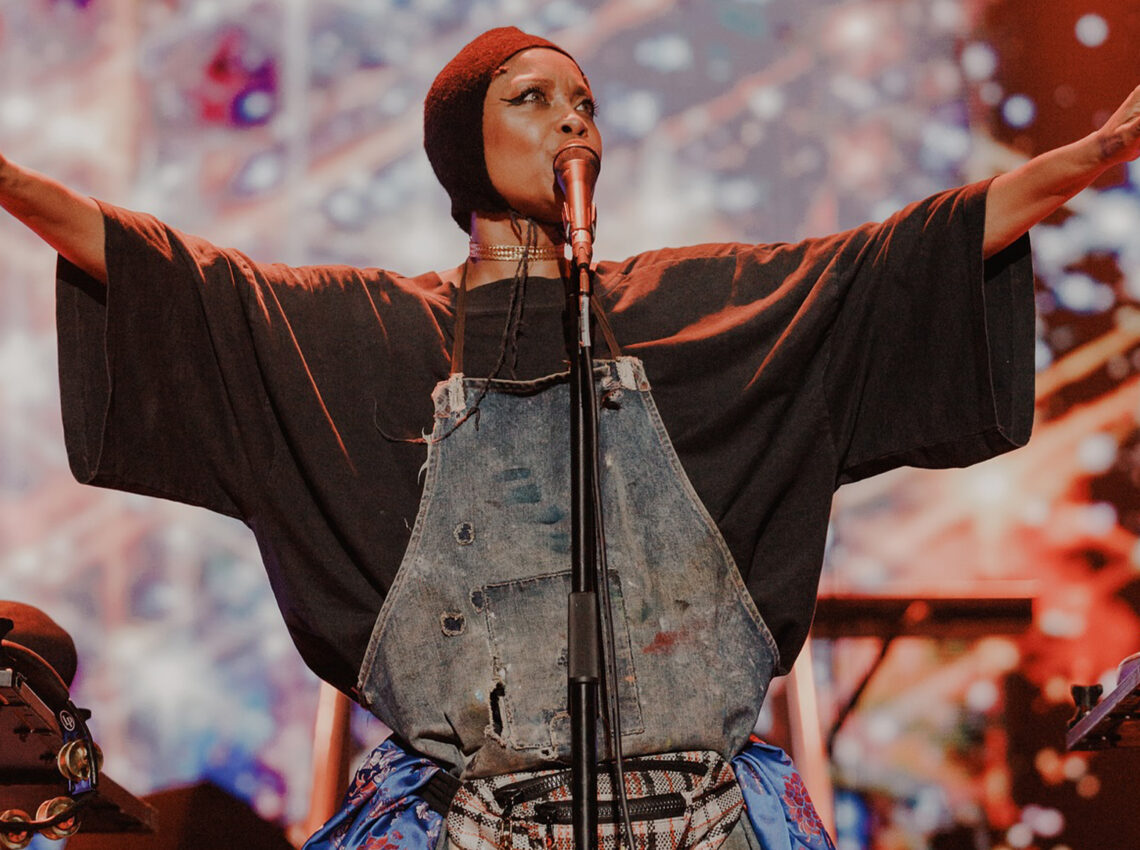Jon Batiste’s BIG MONEY: A Soulful Album Rich in Spirit and Sound

There is a kind of wealth that cannot be counted, only carried. The kind you don’t spend but live. The kind passed between hands at the end of a hard day, or found in a note sung so honestly it splits you open and leaves the truth ringing in your chest. Jon Batiste has made a record about this kind of wealth. BIG MONEY, he calls it, though there is nothing greedy about it. No gold-plated illusions. Only sound, and spirit, and the ache of being human in a world that tells you not to feel so much.

The record opens soft, with Lean On My Love, a duet with Andra Day that doesn’t knock, it enters the room like a breeze through an open window. Her voice moves beside his like old friends holding each other up, like two people who’ve prayed through the same sleepless night.
“If ever you fall, you can lean on my love,” they sing
and for a moment, it feels like enough. Like maybe love is less about saving someone and more about standing next to them, steady, when the saving fails. The song smells like 1972, like Al Green’s worn vinyl, like Stevie Wonder smiling through a synth line. But it doesn’t imitate. Memory is not mimicry. It’s reverence. And Batiste has reverence stitched into every note.
The video was filmed in a small church in Altadena, California, where fire once swallowed homes and fear hung thick in the sky. But the people gathered anyway. They held hands. They sang. They worshipped what could not be burned. That’s what this album is, an act of worship. A hand extended. A place to lay your burdens.
Do It All Again comes next, as if to say that love, even with all its bruises, is worth returning to.
There’s no need to pretend / When it comes to you, I’d do it all again.
Batiste sings it like someone who’s read the last chapter of the book and still chooses to start it over. And maybe that’s what devotion is: not the fantasy of perfection, but the clarity of knowing what hurts and still walking toward it with open arms.
Then comes Lonely Avenue, with Randy Newman’s name written not as a feature, but as a presence. The two men sit at a piano, no studio magic, just a handheld recorder and time. A song from Doc Pomus, made famous by Ray Charles, returns here not as nostalgia but as echo. You can hear the creak of the bench. You can hear the space between words. Batiste calls Ray his patron saint, and you believe it. This is communion.
And then, the mood shifts. Petrichor, named after the smell of rain hitting dry earth, is a lament for a planet being picked apart. “They burnin’ the planet down,” he sings, and the grief is sharp. But so is the plea. Help me Lord, he cries, and it’s not a cry of surrender. It’s the sound of someone standing knee-deep in smoke, begging the sky to stay. It’s a hymn for the earth, and for the children who might still inherit something sacred.
When the title track arrives, it doesn’t strut. It dances. BIG MONEY is a circus, Batiste says, but not the kind with flashing lights and shallow applause. No, this is a tent where joy is revival, where the sermon is set to horns, where you don’t lose your soul chasing a dollar—you find it. The Womack Sisters, granddaughters of Sam Cooke, sing behind him like ancestors whispering truths you’re finally ready to hear. Mama warns:
Don’t be a dummy, everybody chasing that big money.
But she says it with love. With a wink. With a push.
This album is rich, yes but not in what it owns. In what it offers. There are only nine songs, but not a single one feels unfinished. Every track is a chapter, a confession, a benediction. You don’t finish the album and move on. You finish it and sit still. You finish it and feel like something has been placed gently into your hands.
Jon Batiste has never been interested in spectacle. He’s interested in soul. In the kind of music that knows its way home. In sound that makes room for sorrow and insists on joy anyway. He records live, in single takes, because some feelings can’t be faked. Because some truths are most beautiful when left a little messy.
BIG MONEY doesn’t preach. It reminds. That love is still worth writing down. That loneliness can be beautiful if you hold it with care. That grief is not the end. That music is still a place where we gather. That maybe, just maybe, we are not alone.
Not when voices like this are still singing.








